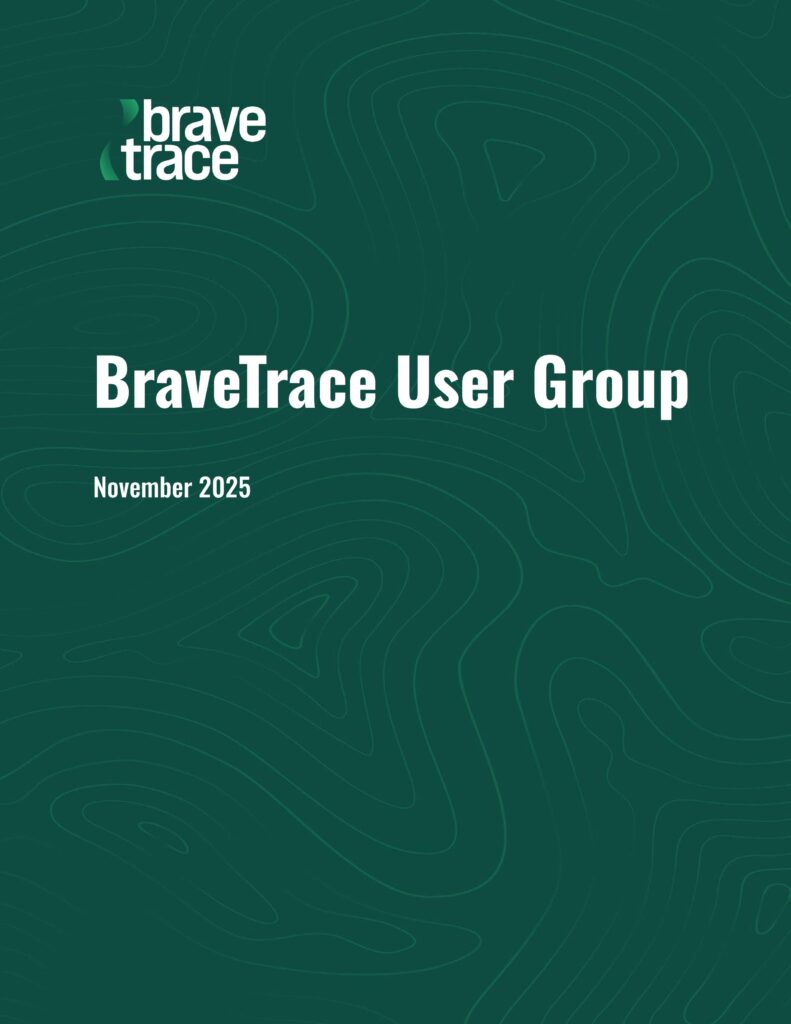
User Group
BraveTrace User Group – November 2025
The Agenda, Slidepack, and Minutes from the fifth BraveTrace User Group meeting in November 2025.
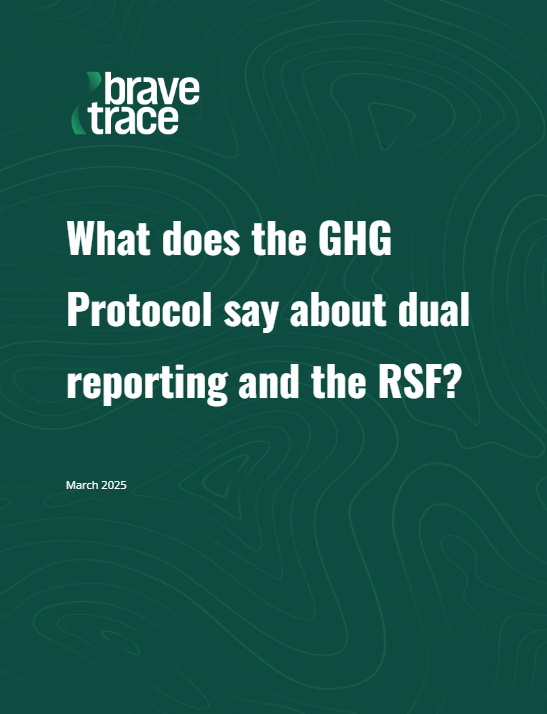
Guidance
The GHG Protocol and dual reporting in New Zealand
The GHG Protocol encourages New Zealand organisations to use dual reporting & the BraveTrace Residual Supply Factor. The Greenhouse Gas Protocol (GHGP) is the most widely used framework for measuring GHG emissions. For New Zealand organisations, adherence to the GHG Protocol’s dual reporting requirements is essential for accurate greenhouse gas (GHG) emissions reporting. According to the protocol, organisations “shall” report their Scope 2 emissions—those related to purchased electricity—using both the Location-Based Method and the Market-Based Method.
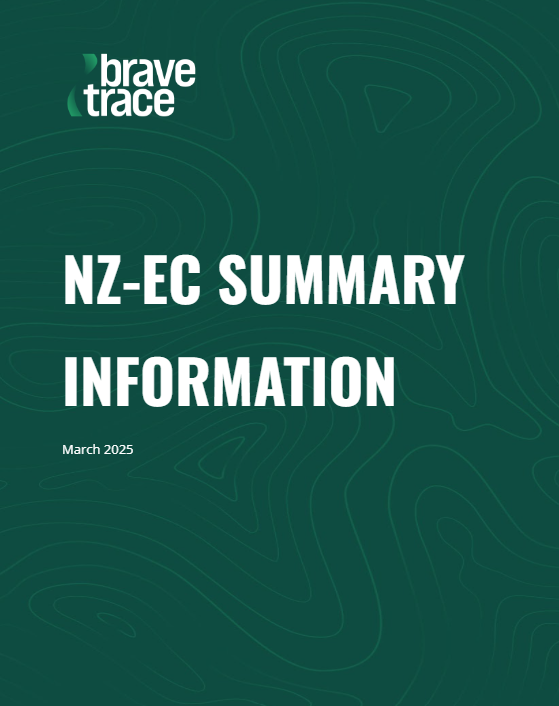
Guidance
BraveTrace NZ-EC Summary Information
In New Zealand, organisations can voluntarily purchase NZ-ECs. As the provider of the NZECS Registry, BraveTrace does not sell energy certificates; we provide the system whereby energy certificates are recorded and tracked. This document provides a quick summary of key topics such as how the system works, the Residual Supply Mix (RSM), fees and costs, simple steps for purchasing NZ-ECs… and more.
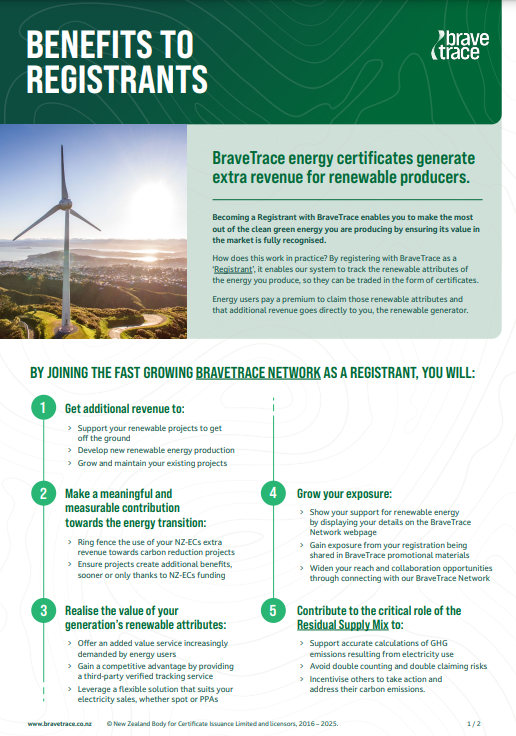
Guidance
Benefits to Registrants (Renewable energy producers)
Becoming a Registrant with BraveTrace enables you to make the most out of the clean green energy you are producing by ensuring its value in the market is fully recognised. This resource gives you a quick overview of the benefits you can experience as a Registrant in our BraveTrace Network. By registering with BraveTrace as a ‘Registrant’, it enables our system to track the renewable attributes of the energy you produce, so they can be traded in the form of certificates.
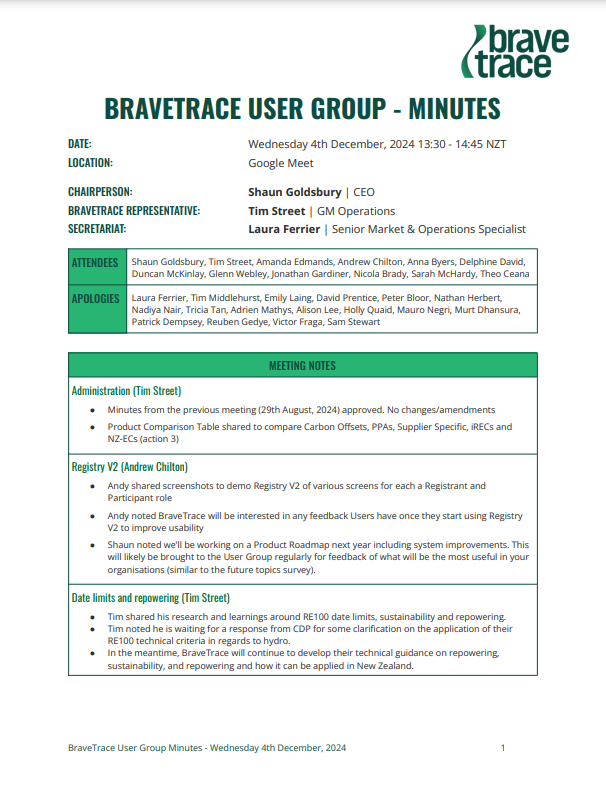
User Group
BraveTrace User Group – Minutes – December 2024
The Minutes from the second BraveTrace User Group meeting in December 2024.

User Group
BraveTrace User Group – Agenda – December 2024
The Agenda from the second BraveTrace User Group meeting in December 2024
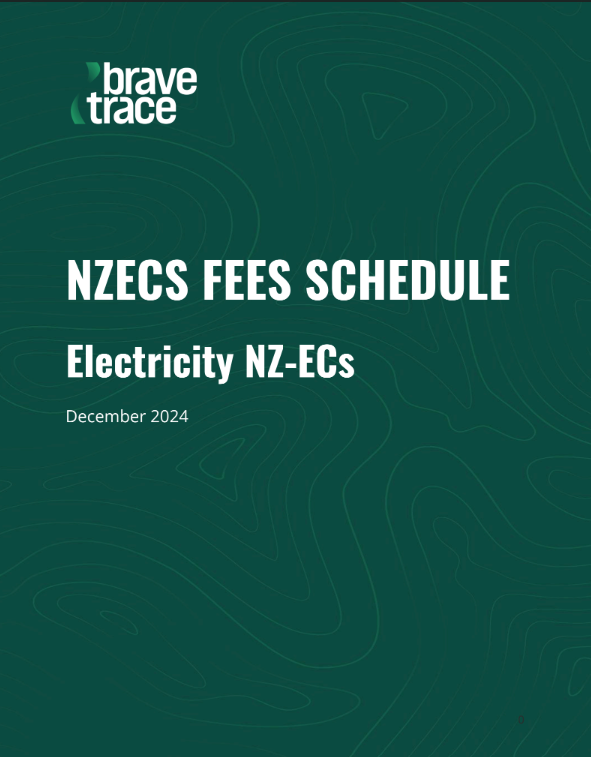
Operational
NZECS Fees Schedule (Electricity NZ-ECs)
This schedule describes the NZECS Fees payable to BraveTrace by NZECS Registrants and Participants for electricity NZ-ECs. The fees associated with Energy User activity on the NZECS Registry are charged to Participants. As documented in the Schedule, we reserve the right to create separate pricing for any new services or products offered in the future. This would include the assessment and registration of production device types not currently included within the NZECS Registry.
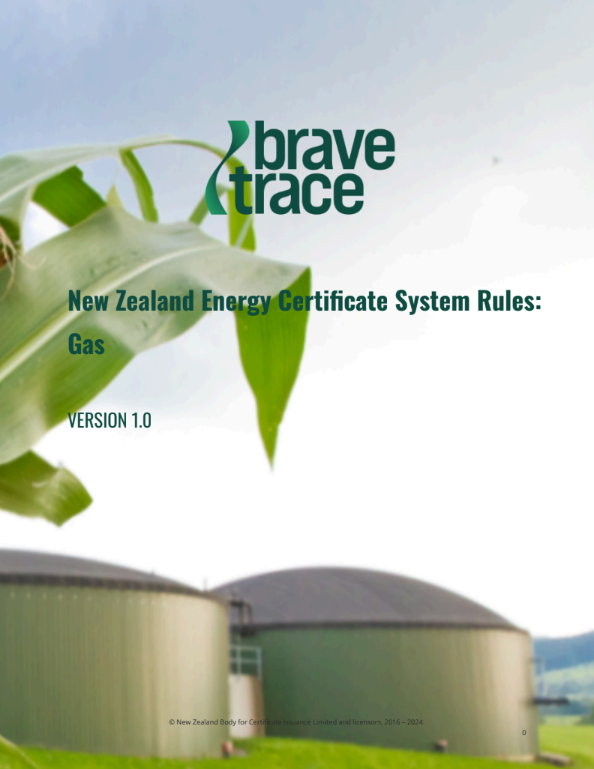
Operational
New Zealand Energy Certificate System Rules: Gas
This section contains the document that explains the key processes and standards that govern the New Zealand Energy Certificate System (NZECS) for gas.
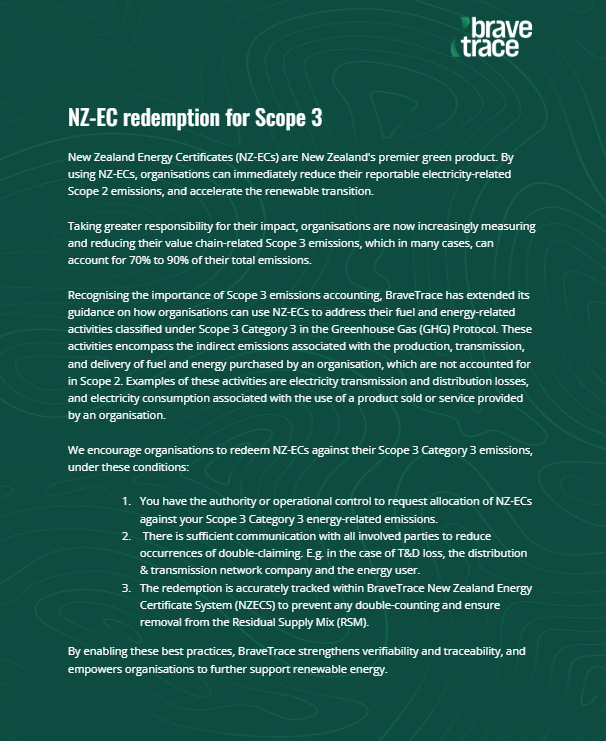
Guidance
NZ-EC redemption for Scope 3
Recognising the importance of Scope 3 emissions accounting, BraveTrace has extended its guidance on how organisations can use NZ-ECs to address their fuel and energy-related activities classified under Scope 3 Category 3 in the Greenhouse Gas (GHG) Protocol. These activities encompass the indirect emissions associated with the production, transmission, and delivery of fuel and energy purchased by an organisation, which are not accounted for in Scope 2.
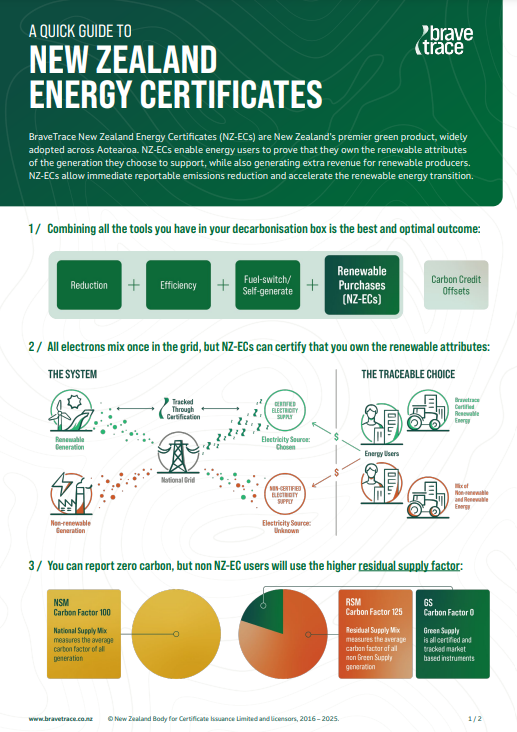
Guidance
A quick guide to New Zealand Energy Certificates (NZ-ECs)
This document is a quick guide for energy users on the benefits of BraveTrace New Zealand Energy Certificates (NZ-ECs), New Zealand’s premier green product. NZ-ECs enable energy users to prove that they own the renewable attributes of the generation they choose to support, while also generating extra revenue for renewable producers. NZ-ECs allow immediate reportable emissions’ reduction and accelerate the renewable transition.
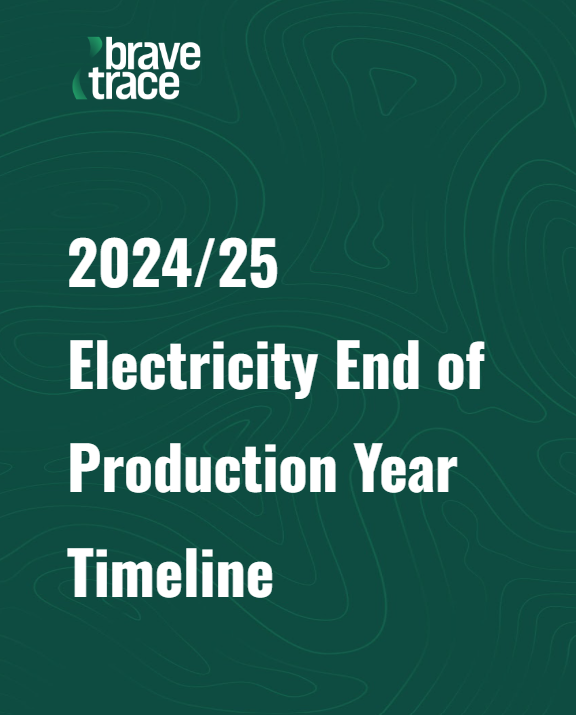
Operational
2024/25 Electricity End of Production Year Timeline
This notification provides important information on the key dates that we request System Users (Participants and Registrants) complete tasks to ensure a smooth close to the current electricity Production Year. The electricity 2024/25 Production Year spans from 1 April 2024 – 31 March 2025. As stated in the NZECS System Rules, all transactions associated with the 24/25 Production Year must be completed by the 30th April 2025.
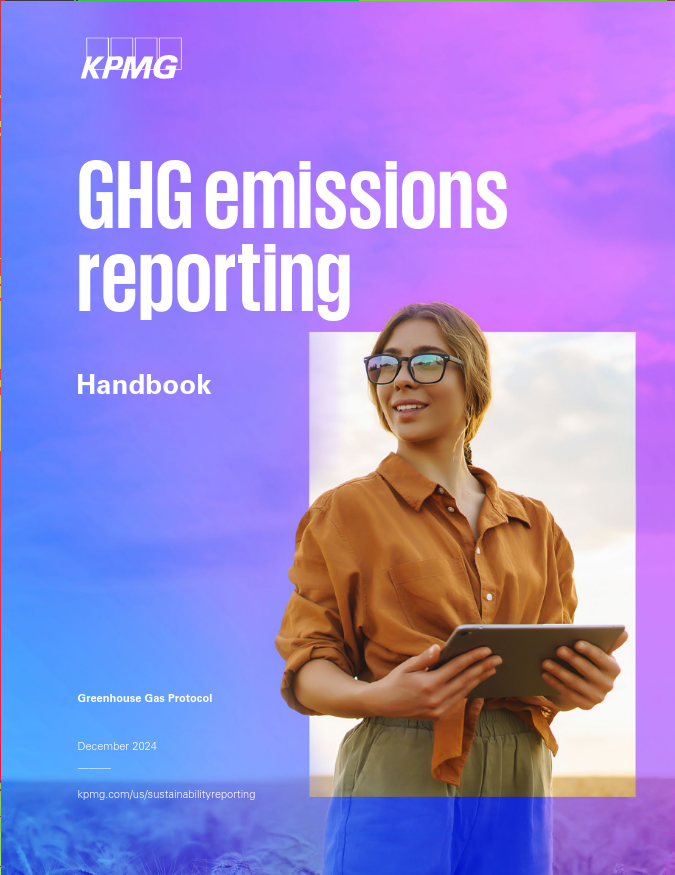
External
KPMG GHG Emissions Reporting Handbook – Dec 2024
KPMG GHG Emissions Reporting Handbook – Dec 2024 Prime time for the GHG Protocol The GHG Protocol has gone from obscurity in the world of financial reporting to having its moment in the spotlight. The Protocol is the foundation leveraged by both IFRS® Sustainability Disclosure Standards and European Sustainability Reporting Standards for reporting GHG emissions.…
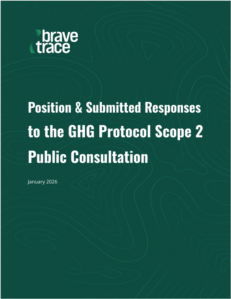
Guidance
BraveTrace Position & Submitted Responses to the GHGP Scope 2 Public Consultation (January 2026)
A decade after its widely adopted Scope 2 Guidance, the GHG Protocol has launched two public consultations: one on updates to Scope 2 Guidance inventory accounting, and another on consequential accounting methods for estimating avoided emissions from the electricity sector. Stakeholders worldwide are encouraged to review the proposed materials and provide input before the 31…
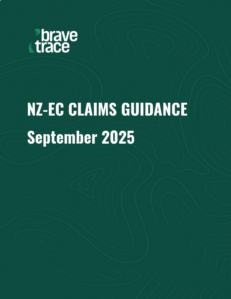
Guidance
BraveTrace NZ-EC Claims Guidance
The New Zealand Commerce Commission’s Environmental Claims Guidelines set clear rules for truthful, specific, and substantiated green marketing. To help apply these principles to New Zealand Energy Certificates (NZ-ECs), BraveTrace has developed this Claims Guidance as a practical reference for businesses.

User Group
BraveTrace User Group – July 2025
The Agenda, Slidepack, and Minutes from the fourth BraveTrace User Group meeting in July 2025.
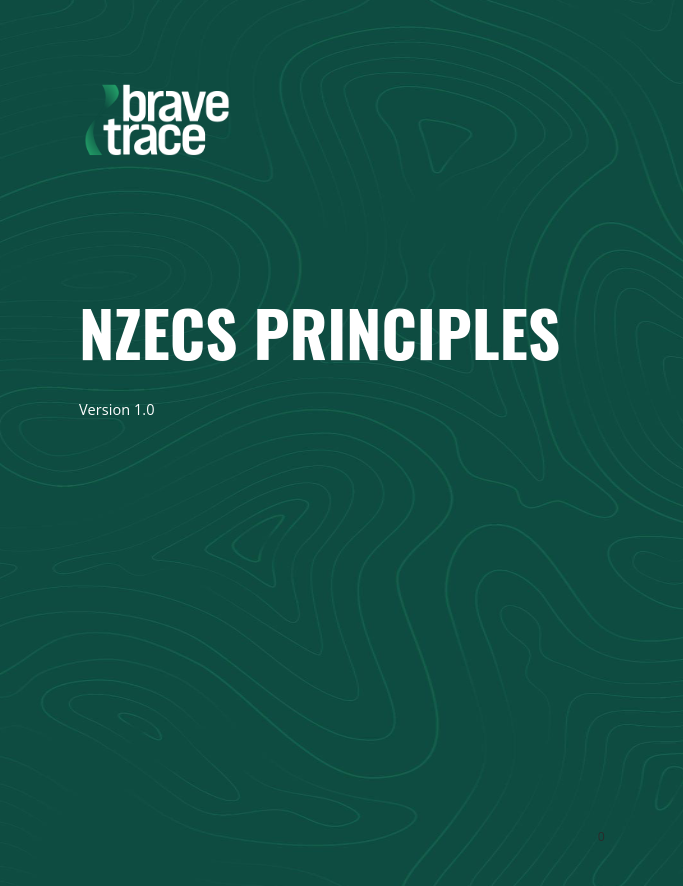
Operational, User Group
NZECS Principles
BraveTrace will assess and prioritise NZECS changes based on the NZECS Principles. The NZECS Principles are also intended to guide advice from the BraveTrace User Group on the future design and operation of the NZECS.

Operational
Statement of Position Example
Statement of Position Example A BraveTrace Statement of Position (SoP) records the transaction of New Zealand Energy Certificates (NZ-ECs) between the Production Device(s), managed by the Registrant(s), and the Energy User, managed by the Participant. It serves as a formal statement from BraveTrace that the relevant NZ-ECs have been redeemed by the Participant on behalf…
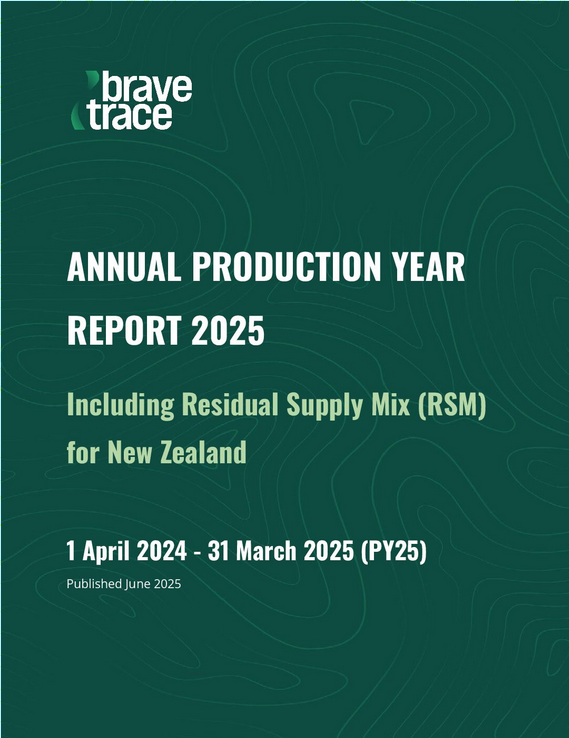
Guidance, Operational
BraveTrace 2025 Annual Report including RSM for New Zealand
We all need energy, but how we use it, and how we buy it, matters. BraveTrace enables energy consumers to demonstrate they are investing in and supporting renewable energy. As more consumers purchase NZ-ECs, the “residual supply mix”, or remaining uncertified generation, becomes more carbon intensive. This increases the incentive on other consumers to use market-based instruments to maintain a lower Scope 2 profile and avoid reputational or compliance risks.
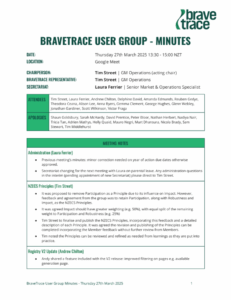
User Group
BraveTrace User Group – Minutes – March 2025
BraveTrace User Group – Minutes – March 2025
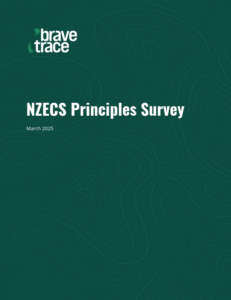
User Group
BraveTrace User Group – Slidepack – March 2025
BraveTrace User Group – Slidepack – March 2025
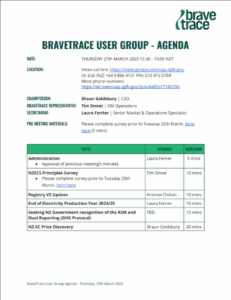
User Group
BraveTrace User Group – Agenda – March 2025
BraveTrace User Group – Agenda – March 2025
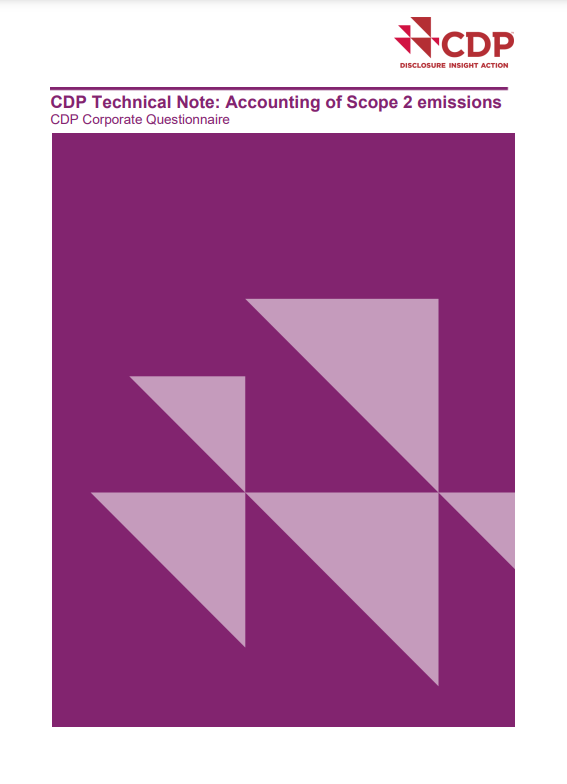
External
CDP Technical Note: Accounting of Scope 2 emissions
Many countries’ governments will publish a scope 2 location-based emissions factor for their grid(s). The International Energy Agency (IEA) maintains a list of scope 2 location-based emissions factors.
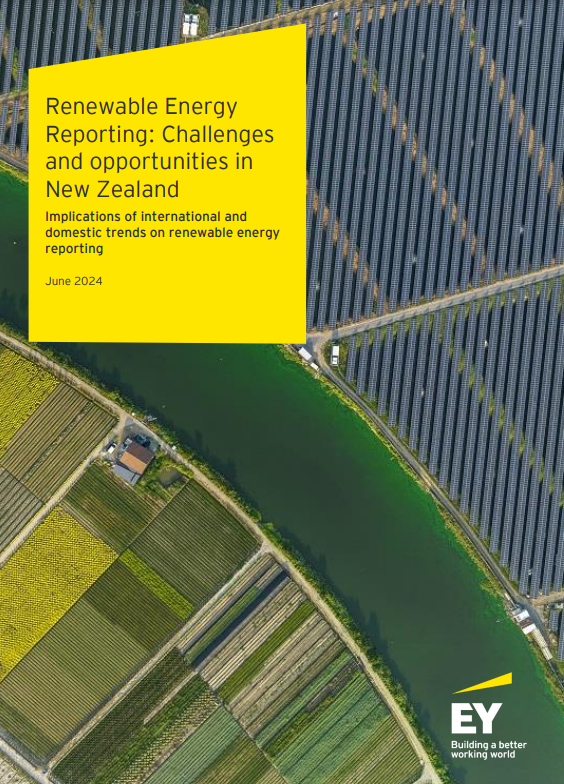
External
Renewable Energy Reporting: Challenges and opportunities in New Zealand
The purpose of this note is to set out the considerations that organisations in New Zealand should make when evaluating their potential use of renewable energy, through the use of market-based instruments, such as RECs. The introduction of mandatory climate disclosures in New Zealand is encouraging a wider range of organisations to think about the options they have available to help them reduce their emissions footprint. These discussions are bringing the use of RECs into sharper focus for New Zealand organisations.
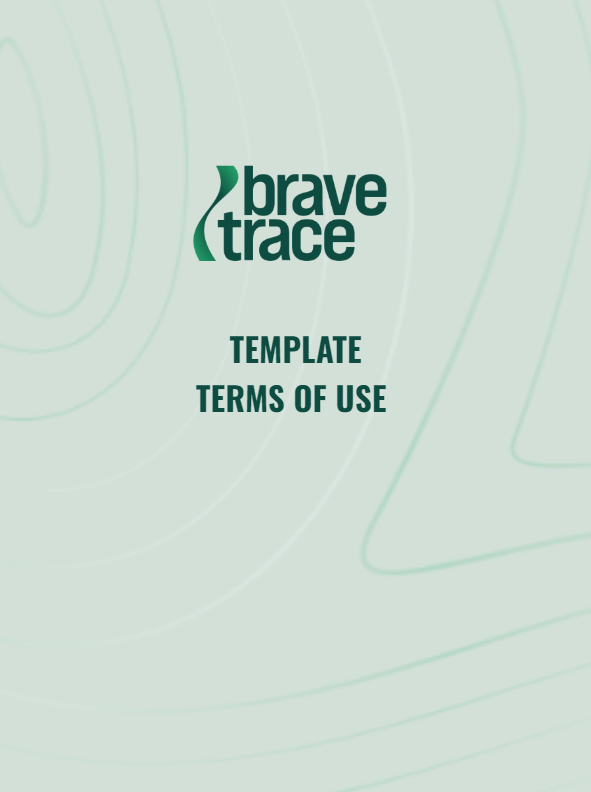
Operational
Template Terms of Use
You may access and use the Templates provided by BraveTrace for your own lawful business purposes in accordance with our Terms of Use.

Operational
Template Sale and Purchase Agreement
We have developed a template Sale and Purchase Agreement that purchasers and sellers of New Zealand Energy Certificates may use.
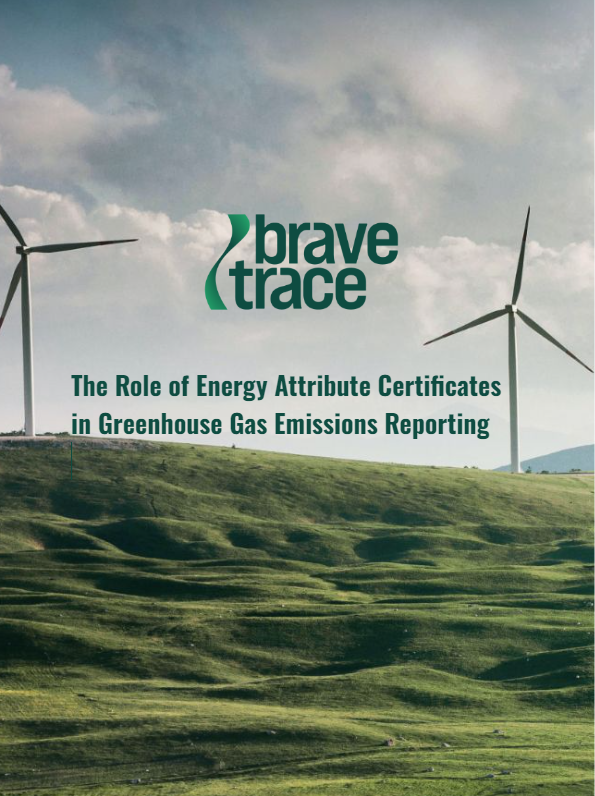
Guidance
The Role of Energy Attribute Certificates in Greenhouse Gas Emissions Reporting
This paper demonstrates the basis for recognition and use of EACs (including NZ-ECs) by parties wishing to purchase renewable energy and reduce their greenhouse gas emissions.
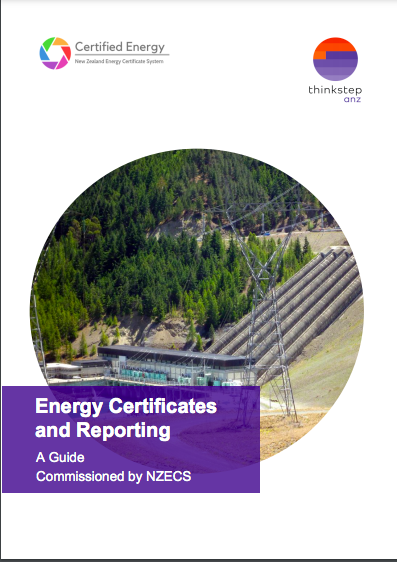
Guidance
Energy Certificates And Reporting – A Guide Commissioned by NZECS
This report describes the most commonly-used corporate reporting frameworks in NZ, their linkages to each other and their relationship to EACs.
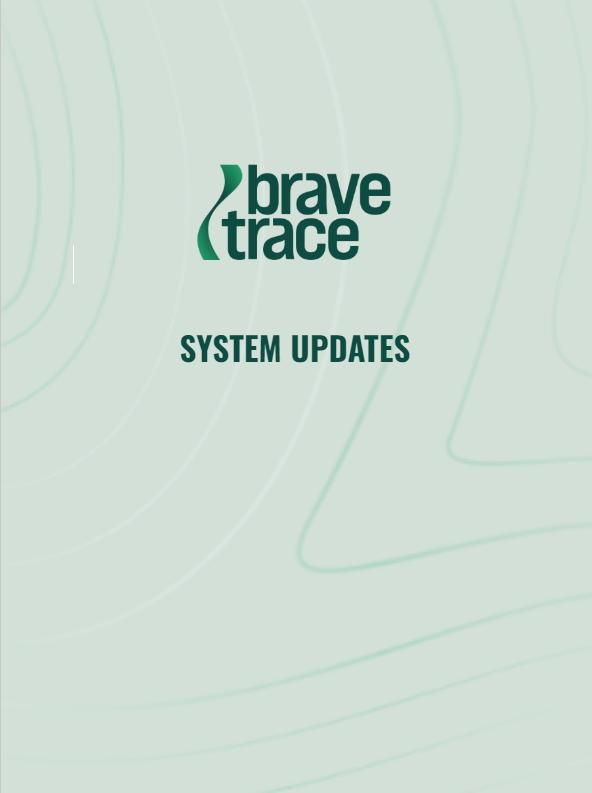
Operational
System Updates
This page contains periodic announcements related to the operation of the New Zealand Energy Certificate System. Examples of announcements posted on this page include updates to the NZECS registry and production year key dates.

Operational
Energy User Registry Access Terms
The Registry is an online service managed by Certified Energy, where certificates are transacted and tracked.
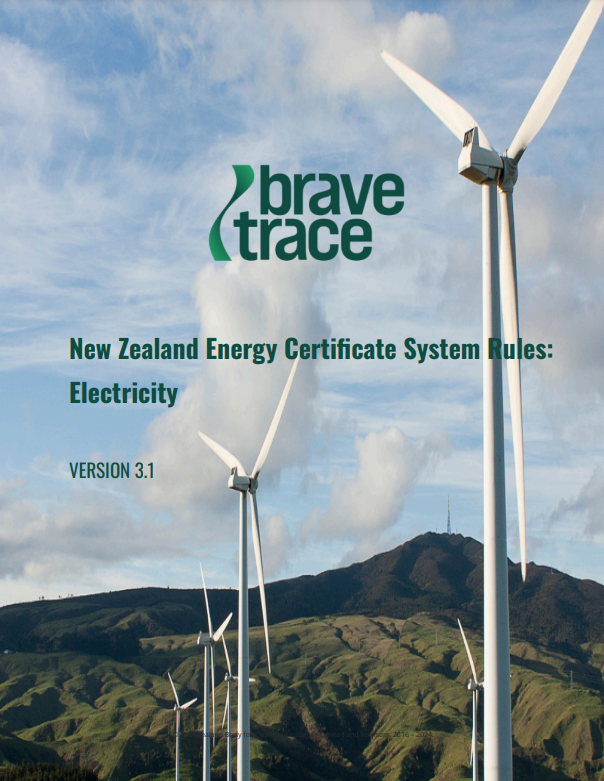
Operational
New Zealand Energy Certificate System Rules: Electricity
This section contains both the document that explains the key processes and standards that govern the New Zealand Energy Certificate System (NZECS) – Version 3.1, and the NZECS rule changes decision paper (a high-level summary of changes introduced in the new version of the Rules).

External
RE100 2025 Technical Criteria
RE100 technical criteria + appendices The RE100 technical criteria are the rules that member companies of the RE100 campaign observe when procuring renewable electricity and defining their progress towards their RE100 targets. The technical criteria may also be used by any corporate buyer as a guide for procurement of renewable electricity and making claims to…
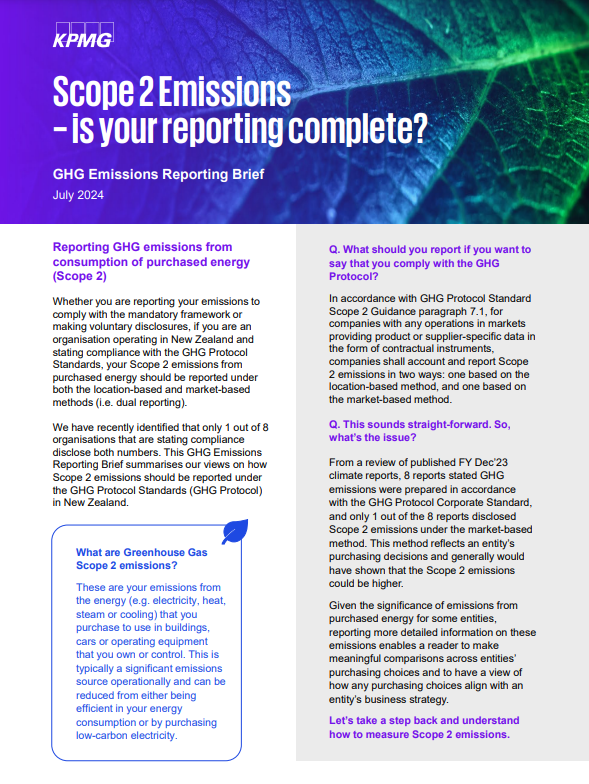
External
Scope 2 Emissions – is your reporting complete?
KPMG Scope 2 Emissions – is your reporting complete? Whether you are reporting your emissions to comply with the mandatory framework or making voluntary disclosures, if you are an organisation operating in New Zealand and stating compliance with the GHG Protocol Standards, your Scope 2 emissions from purchased energy should be reported under both the…
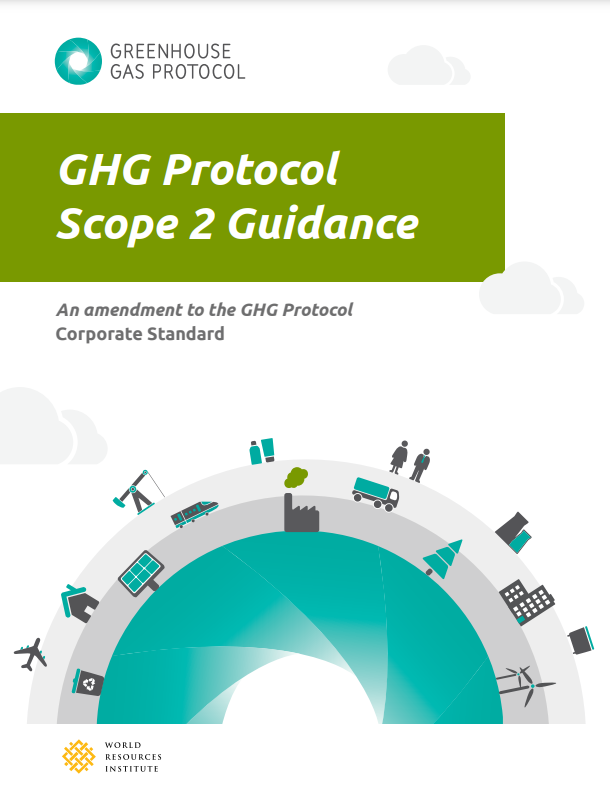
External
GHG Protocol Scope 2 Guidance
GHG Protocol Scope 2 Guidance The Corporate Standard requires organizations to quantify emissions from the generation of acquired and consumed electricity, steam, heat, or cooling (collectively referred to as “electricity”). These emissions are termed “scope 2” and are considered an indirect emissions source (along with scope 3), because the emissions are a consequence of activities…
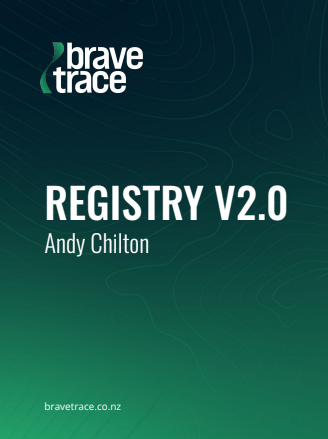
User Group
BraveTrace User Group – Slide Pack – December 2024
The Slidepack from the second BraveTrace User Group meeting in December 2024.
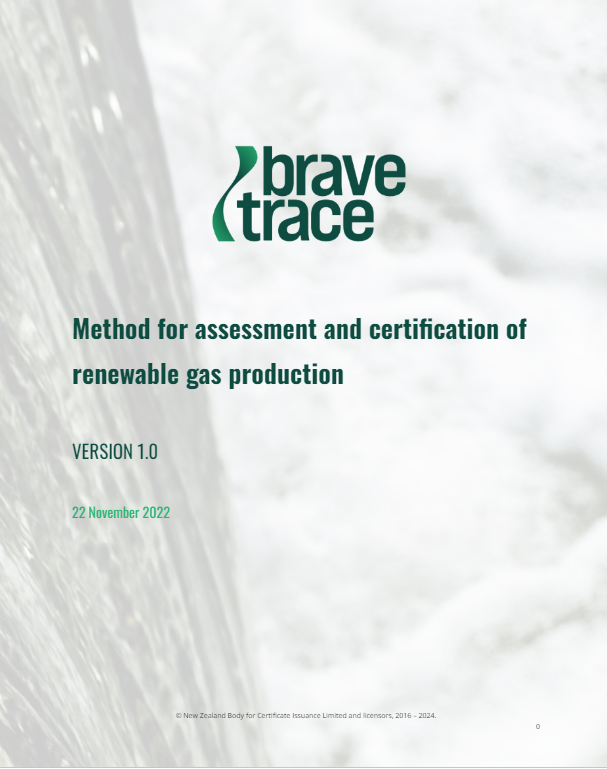
Operational
Method for assessment and certification of renewable gas production
This framework document introduces the general approach to verify and communicate characteristics of renewable gas production in New Zealand, via the New Zealand Energy Certificate System.
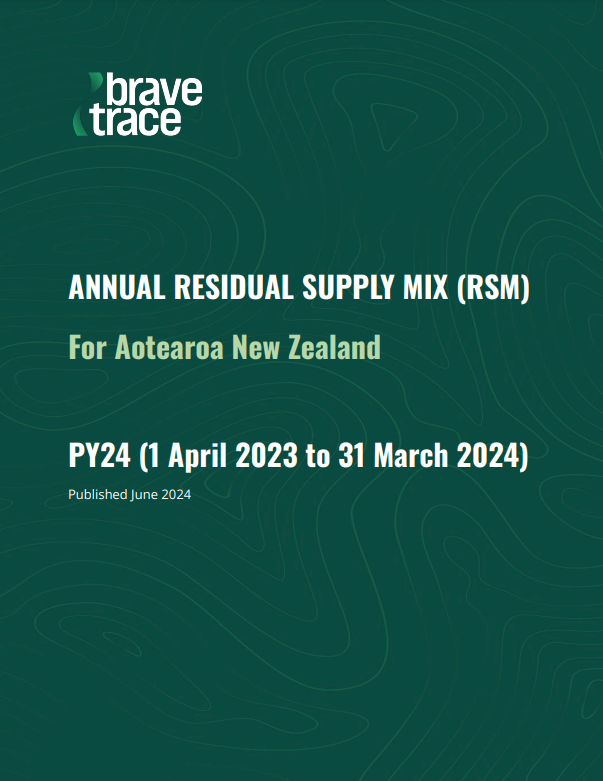
Guidance, Operational
Annual Residual Supply Mix (RSM) for Aotearoa New Zealand – PY24
The annual RSM has now been calculated for PY24 (1 April 2023 to 31 March 2024). This was the fifth year in which NZ-ECs were transacted in New Zealand, and the difference of the RSM from the National Supply Mix (NSM) continues to grow in line with growth in the number of transacted NZ-ECs. Read the full publication here.
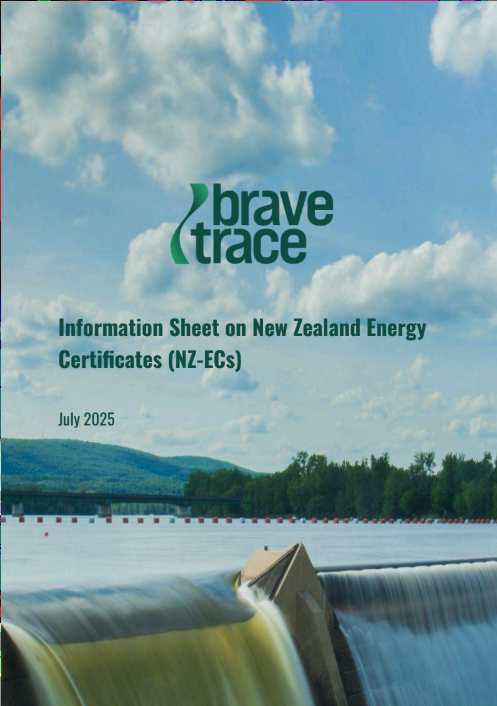
Guidance
Information Sheet on New Zealand Energy Certificates (NZ-ECs)
If you would like to get a better understanding of the NZECS and New Zealand Energy Certificates (NZ-ECs) including how they are traded, factors that influence their value, and how they can be captured in your carbon reporting, then please free to read and share our information sheet.
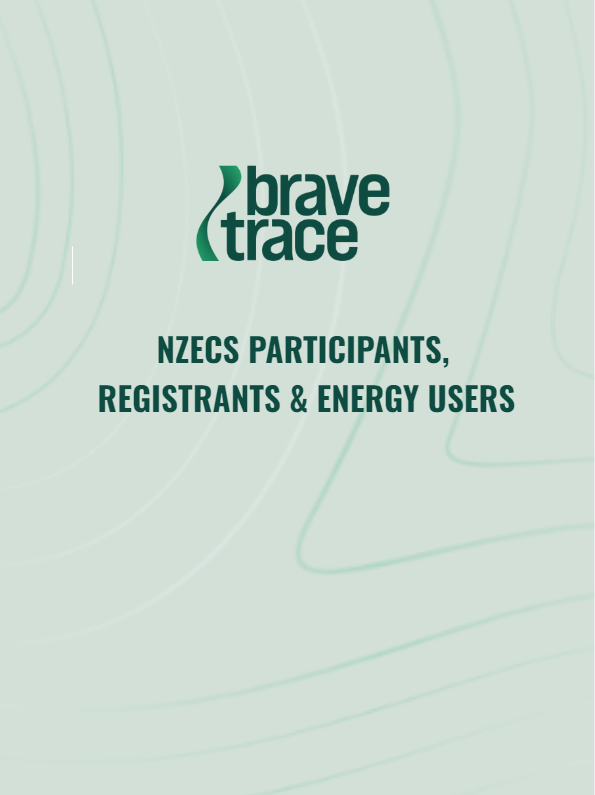
Guidance
NZECS Participants, Registrants and Energy Users
A description of the roles of a Participant, Registrant and Energy User
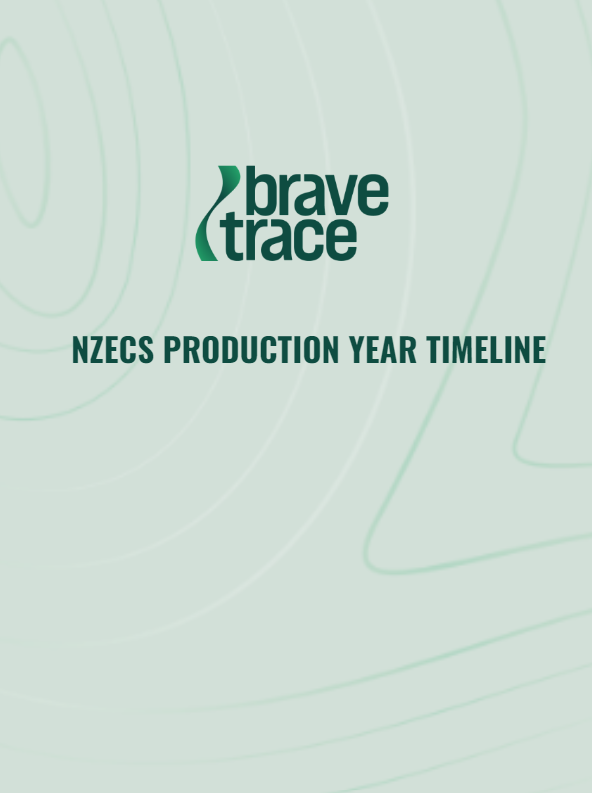
Operational
NZECS Electricity Production Year Timeline
This graphic shows the different phases in BraveTrace NZECS Electricity Production Year (PY) timeline. The shorthand for a Production Year is ‘PYxx’ where end-of-year date is used to indicate the relevant production year. For example, ‘PY26’ refers to the production year that runs from 1 April 2025 to 31 March 2026.
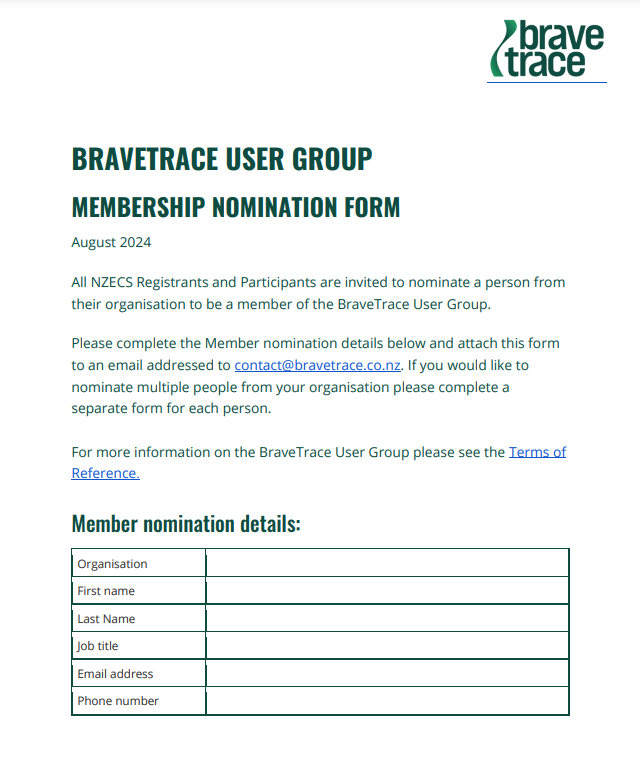
User Group
BraveTrace User Group Nomination Form
All NZECS Registrants and Participants are invited to nominate a person from their organisation to be a member of the BraveTrace User Group. Please complete the Member nomination details and attach this form to an email addressed to . If you would like to nominate multiple people from your organisation please complete a separate form for each person.
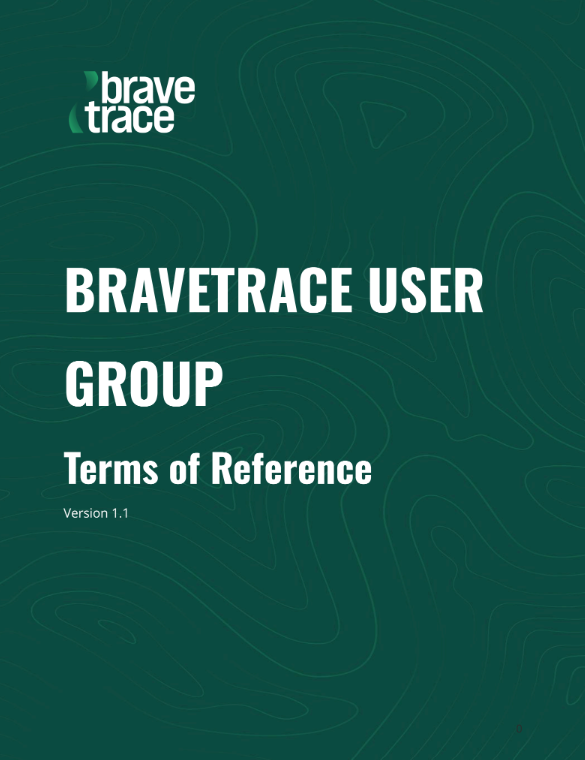
User Group
BraveTrace User Group Terms of Reference
The purpose of the BraveTrace User Group (User Group) is to provide advice to BraveTrace on the future design and operation of the NZECS, ensuring that it meets the evolving needs of its users (both direct and indirect users of the NZECS), remains consistent with international standards, integrates well with the New Zealand energy market, and leads to impactful energy procurement.

User Group
BraveTrace User Group – Slidepack, August 2024
The Slidepack from the first BraveTrace User Group meeting in August 2024.
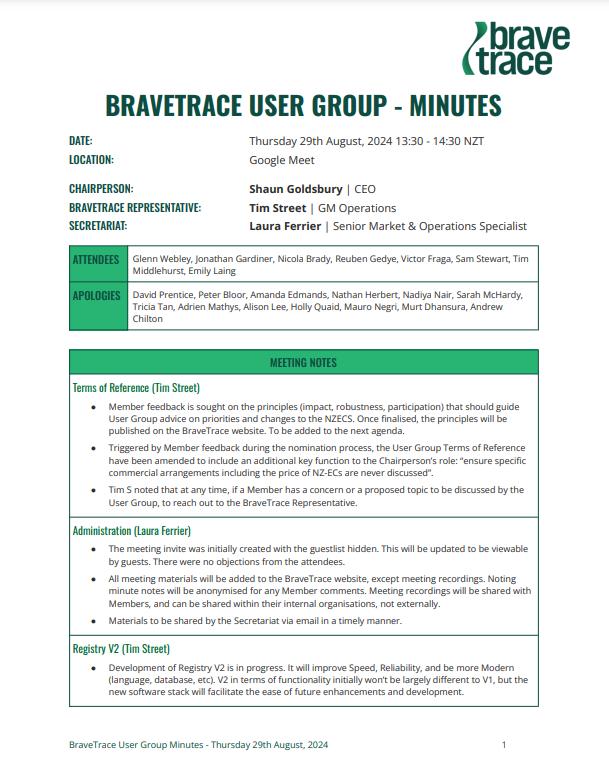
User Group
BraveTrace User Group – Minutes, August 2024
The Minutes from the first BraveTrace User Group meeting in August 2024.
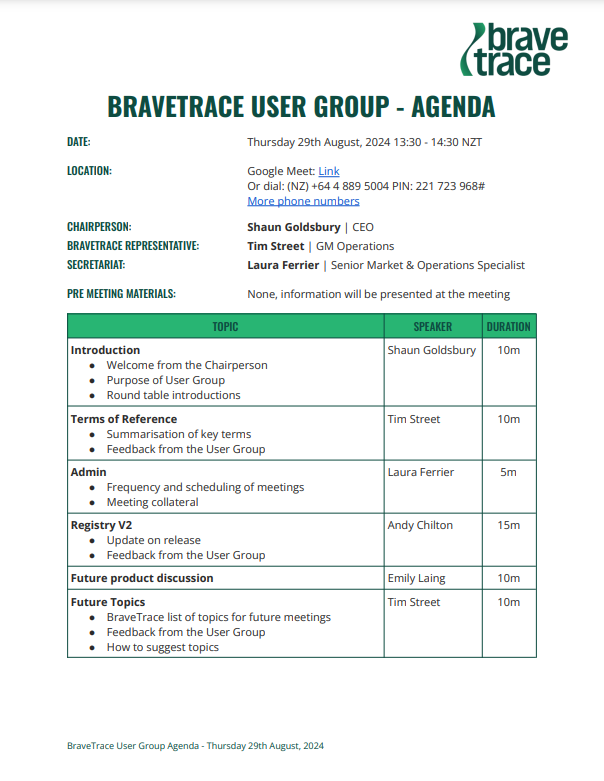
User Group
BraveTrace User Group – Agenda, August 2024
The Agenda from the first BraveTrace User Group meeting in August 2024.
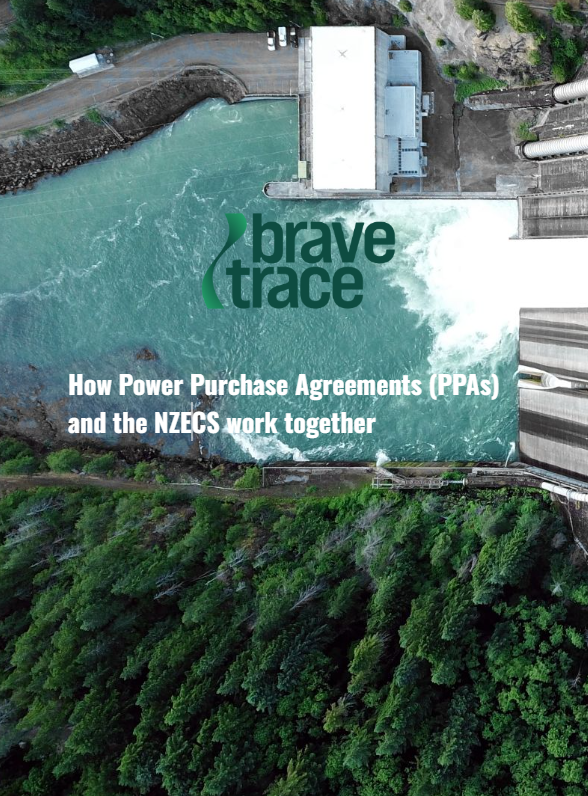
Guidance
How Power Purchase Agreements (PPAs) and the NZECS work together
Power Purchase Agreements (PPAs) are a type of electricity purchase arrangement that reduce consumer price risk and support the development of new electricity generation. In recent years, there has been a notable surge in PPAs amongst New Zealand businesses.